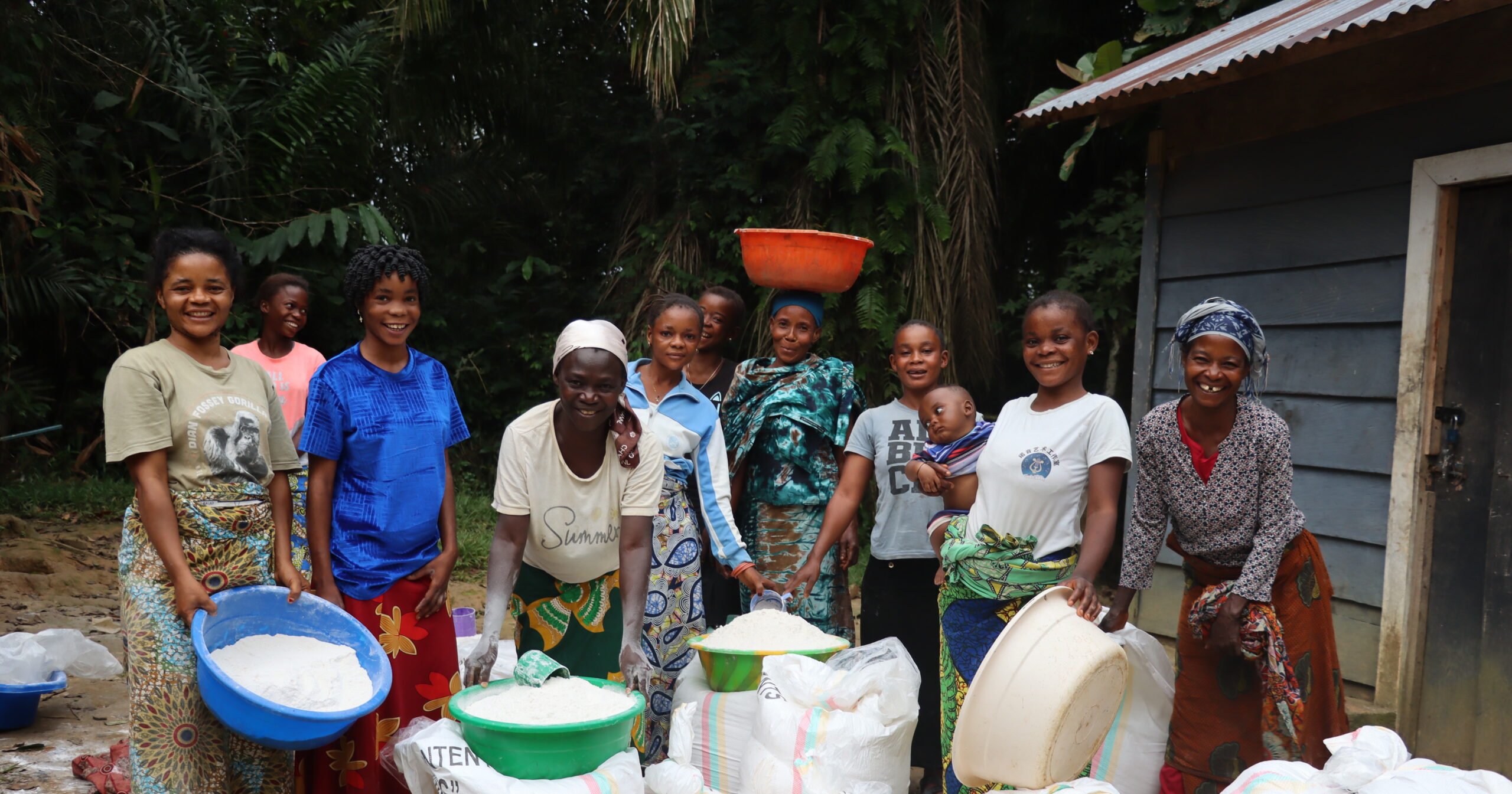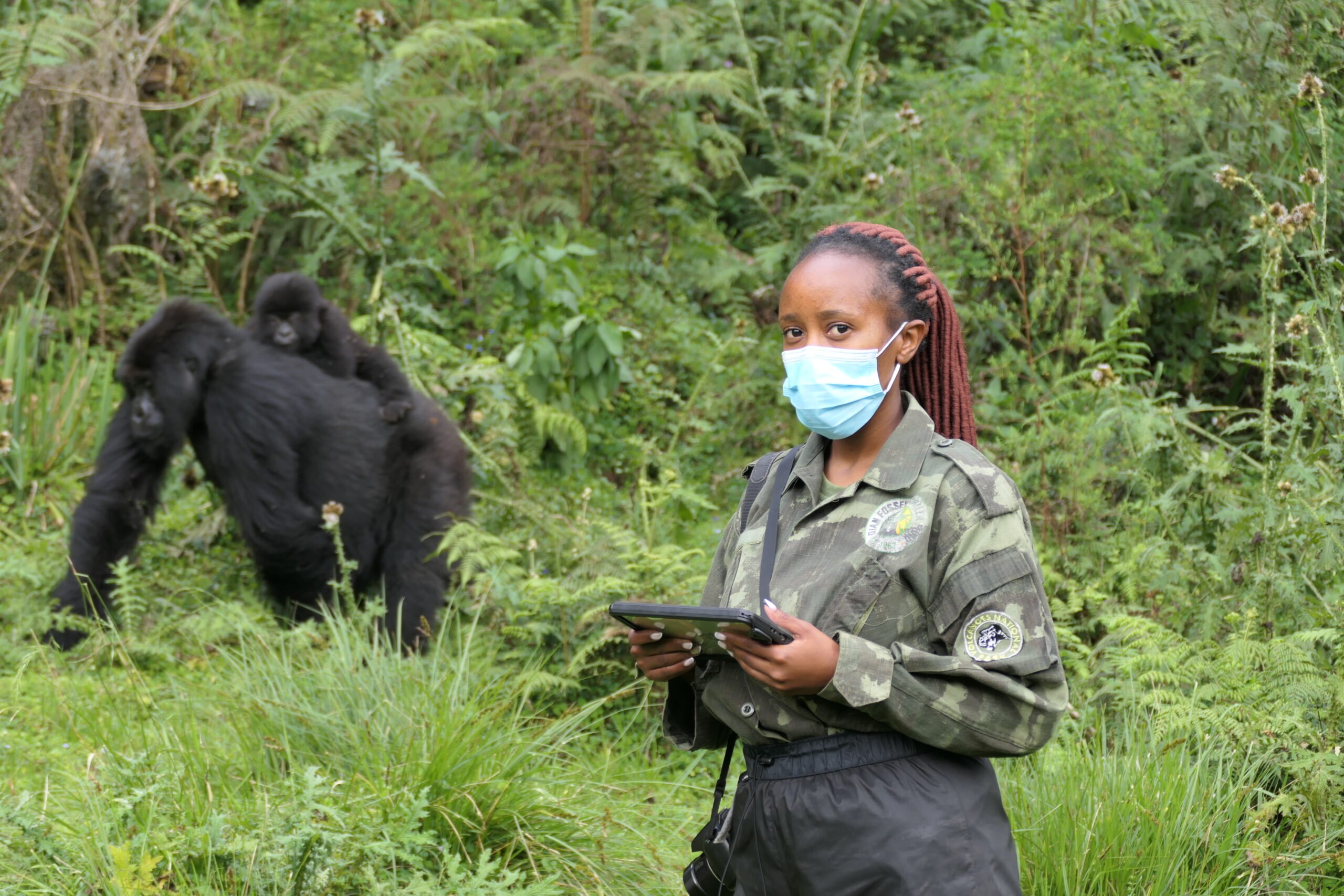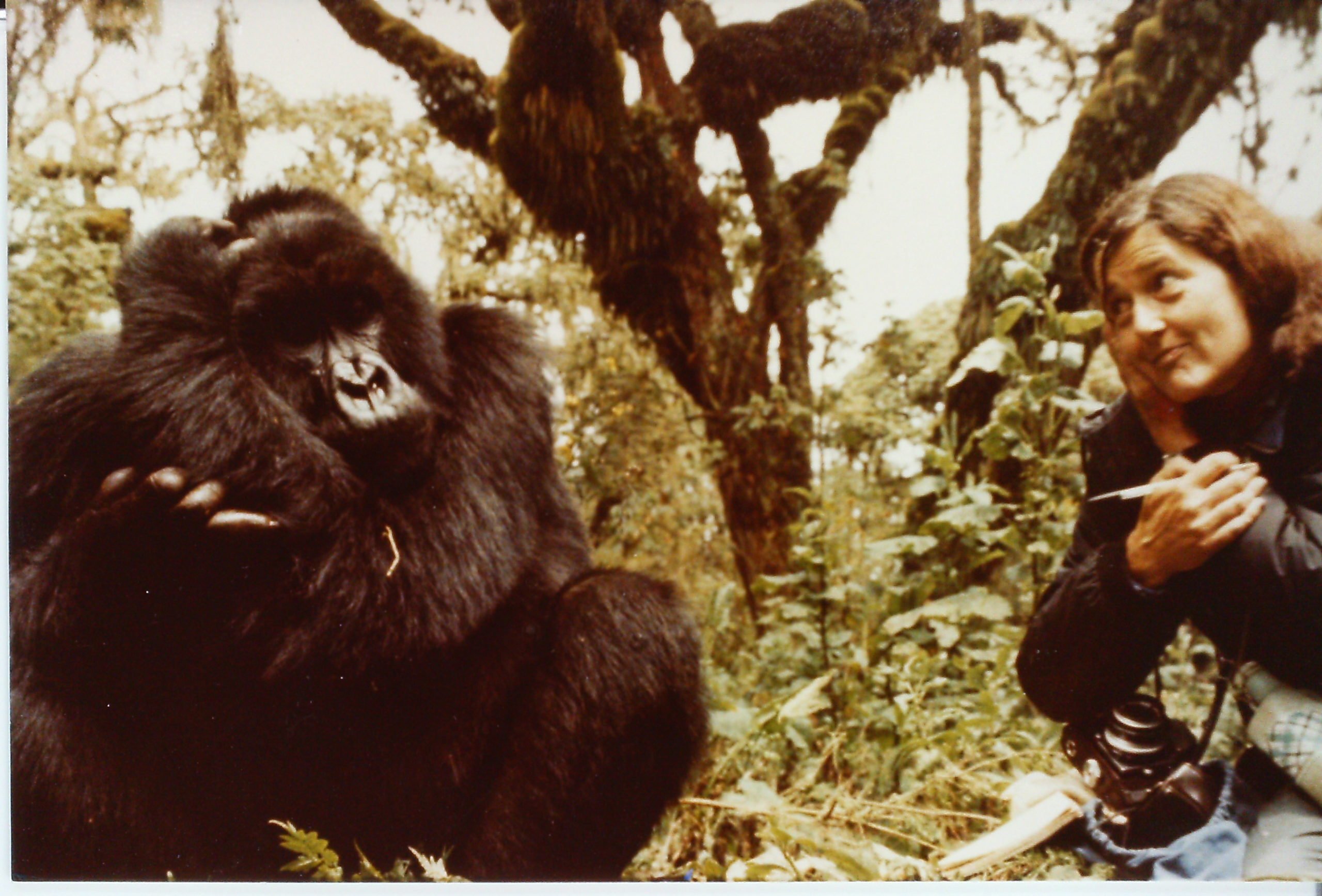On International Women’s Day, we celebrate some of the many African women advancing their careers in science and conservation
Here at the Fossey Fund, we are committed to helping build the next generation of conservationists in Africa and beyond. Today, we’re excited to tell you about three Rwandan women who are advancing their scientific careers through their work with the Fossey Fund.
Carine Uwamahoro - Master's student
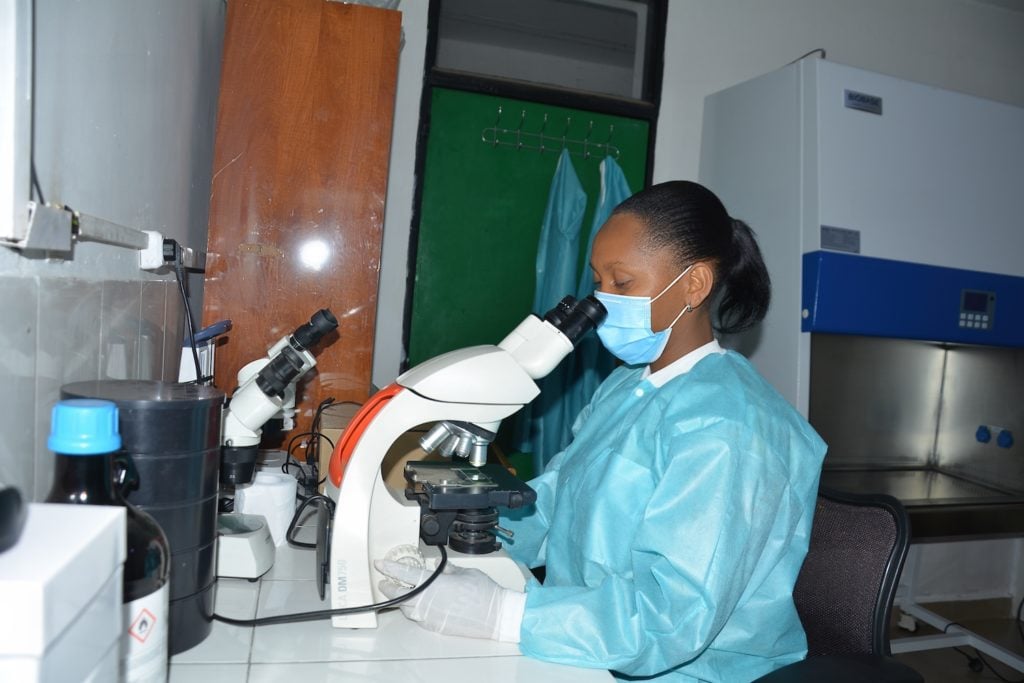
I advise young girls to be passionate and be open to new topics because you never know what will interest you the most. Through working hard, dedication and perseverance, you can reach what seems unreachable.
Carine Uwamahoro
After completing her bachelor’s degree in botany at the University of Rwanda in 2016, Carine was selected to join the Fossey Fund as a professional intern. During her internship, Carine worked on a number of our conservation projects, including monitoring of gorilla stress hormones, documenting gorilla feeding development and wetland monitoring.In 2018, Carine was selected to join a collaborative project led by the Institute of Vertebrate Biology, Czech Academy of Sciences; University of Veterinary Sciences Brno, Czech Republic; Gorilla Doctors; and the Dian Fossey Gorilla Fund; in collaboration with the protected area authorities of Rwanda, Uganda and the Democratic Republic of the Congo.
The project team investigated the epidemiology and pathological effects of gastrointestinal parasites in mountain gorillas. As lab coordinator for the project, Carine was responsible for storage, processing and analysis of fecal samples, data entry and management, and training new interns.
In 2018, Carine was selected to join a collaborative project led by the Institute of Vertebrate Biology, Czech Academy of Sciences; University of Veterinary Sciences Brno, Czech Republic; Gorilla Doctors; and the Dian Fossey Gorilla Fund; in collaboration with the protected area authorities of Rwanda, Uganda and the Democratic Republic of the Congo. The project team investigated the epidemiology and pathological effects of gastrointestinal parasites in mountain gorillas. As lab coordinator for the project, Carine was responsible for storage, processing and analysis of fecal samples, data entry and management, and training new interns.
Carine was then accepted to a master’s program in Wildlife and Livestock Production, Management and Conservation at the Czech University of Life Sciences Prague. She attended her first year online because of COVID-19, but in 2021, the university returned to in-person classes, and Carine is now completing her degree in the Czech Republic.
In 2021, Carine received a veterinary scholarship from Wildlife Conservation Network, which will help her to continue her studies.
Axelle Kamanzi - PhD candidate
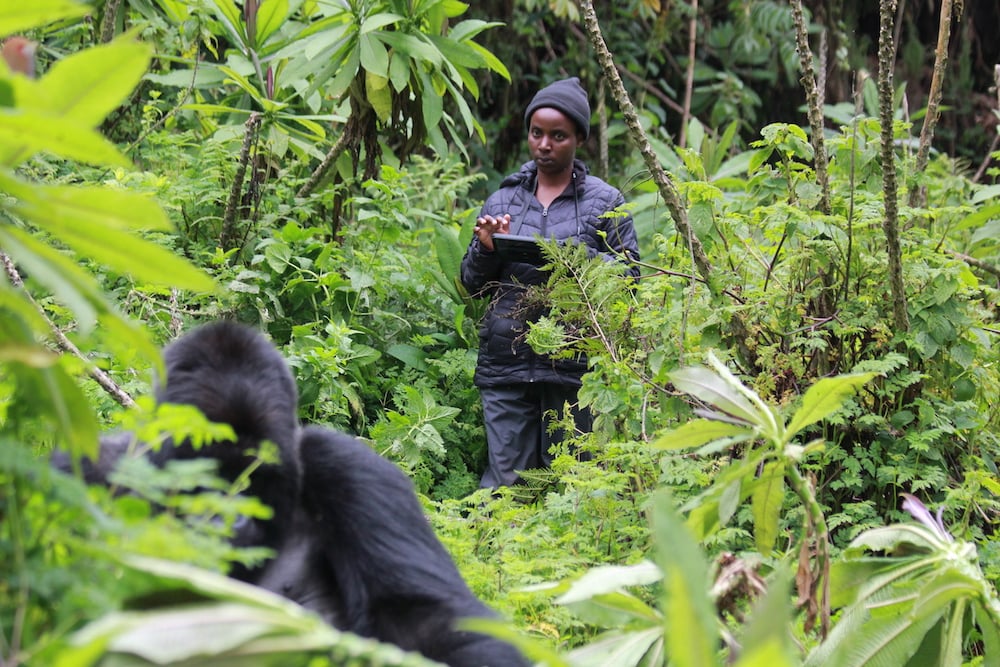
Science is for everyone — including women. Girls, you are no longer left behind, just keep up with your education.
Axelle Kamanzi
Axelle Kamanzi received a bachelor’s degree from the University of Rwanda and completed a master’s degree at West Chester University, for which she studied chimpanzees in Rwanda’s Gishwati National Park. She is now a PhD candidate at The George Washington University (GWU) in Washington, D.C., and is conducting her doctoral research on gorillas in conjunction with the Fossey Fund. She divides her time between the United States and Rwanda, where she is collecting data in the field. Her husband is also working on his PhD at GWU and worked with the Fossey Fund when he was a student at the University of Rwanda.
Axelle joined the doctoral program at GWU in 2017. Her research interests focus on primate feeding ecology, nutrition and conservation. Axelle’s dissertation research examines the development of feeding behavior and dietary preferences in mountain gorillas; she is using both long-term data from the Fossey Fund as well as observing mountain gorillas in Volcanoes National Park.
Axelle has been awarded multiple grants for her PhD research, including from National Geographic, the Leakey Foundation and the National Science Foundation. After she completes her doctoral research, she hopes to contribute to primate research and conservation close to home.
Marie Fidele Tuyisenge- Research assistant
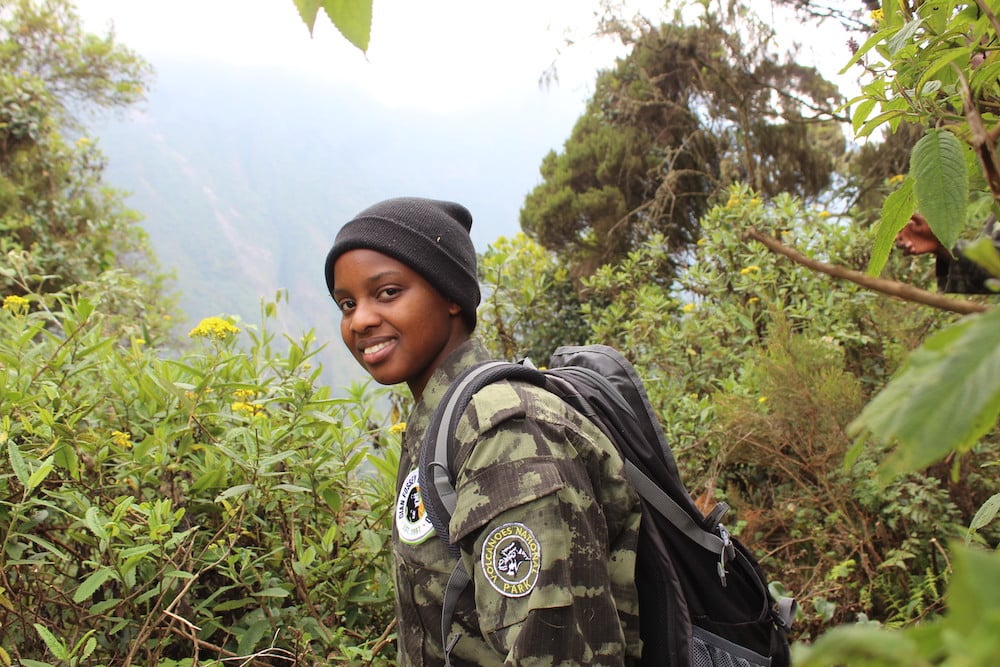
I would encourage young girls who want to become scientists or conservationists to stand strong and follow their passion, to embrace their thirst for knowledge and eagerness to advance that knowledge.
Marie Fidele Tuyisenge
Marie Fidele first came to the Fossey Fund’s Karisoke Research Center in 2016. As an undergraduate studying botany at the University of Rwanda, she worked on her bachelor’s thesis at Karisoke. After graduation, she joined us as a professional intern.
Marie Fidele developed a simple and environmentally-friendly field method for identifying diets in herbivores through fecal analysis; her research was published in the Wildlife Society Bulletin. Marie Fidele is now a research assistant in our biodiversity program, where she is building our herbarium as a resource for students and scientists working in Volcanoes National Park and monitoring the reforestation work on our new Ellen Campus. She was also recently named a “Gorilla Game Changer”—watch the video about her work here.
Marie Fidele was also recently part of an exciting cross-cultural educational experience we developed with Georgia College and State University (GCSU). Fossey Fund researchers give presentations to GCSU students, enabling them to learn more about science in action. Marie Fidele presented her research to GCSU students in an upper-division plant anatomy course and train them in lab protocol. The students then modified the protocol and applied it to the study of herbivores in Georgia, such as deer, wild hogs and Canada geese.

